Shop Local this Christmas
Since the retail sector emerged from lockdown in May 2021 we have worked with 20 retailers who have invested in store refits cross our portfolio of 31 shopping centres and 19 retail parks. Shop local this Christmas!
Since the retail sector emerged from lockdown in May 2021 we have worked with 20 retailers who have invested in store refits cross our portfolio of 31 shopping centres and 19 retail parks. Shop local this Christmas!
Revised street categorisation reflects retail shift to focus on shopper experience.
The recently published Draft Dublin City Development Plan 2022-2028 proposes changes to Dublin City Council’s approach to retail in the City Retail Core (Henry and Grafton Street environs). The revised categorisation of some streets aims to support a more diverse retail experience while preserving the role of Grafton and Henry Street at the top of the retail hierarchy.
Street categorisation involves recognising key shopping streets within the Core as suitable for specific use, protecting them as shopping destinations. The changes were informed in part by the ‘Role and Function of Retail in the Dublin City Centre’ retail study carried out by Bannon for Dublin City Council in early 2021.
Street Category Changes
Category 1 designation focuses on a predominately higher order retail user mix at street level, aiming to promote premium retail within the city centre. Under Category 1 low-order retail services are not permitted and non-retail services may be provided for, on merit, providing they do not undermine the primary retail function. The revised plan has allocated the Category 1 designation to Henry/Mary Street (O’Connell to Jervis Street) and Grafton Street only. O’Connell Street, Middle Abbey Street, Liffey Street Lower, Wicklow Street, South Anne Street, Duke Street and South King Street have all been moved from Category 1 to Category 2 streets.
Category 2 applies to streets where there is an existing mix of operators, such as retail, food and beverage, cultural and entertainment, or where there is the opportunity for increased diversity of retail character on the street. The objective is to allow for a retail mix that is complimentary to the Category 1 street while enhancing the vibrancy of the shopping experience within the City Centre.
This plan underscores Henry and Grafton Street as the City’s premier retail destinations whilst the re-categorisation shall be supportive of a more diverse and vibrant retail offer within the broader retail core. The changes will allow the City Centre to better reflect what is happening in the global retail market with a shift to Omni Channel Retailing and a greater focus on the experience that retail destinations offer rather than just the products they sell. This approach strengthens the City Retail Core’s ability to attract spend from the workers, students and tourists that have been so sorely missed.
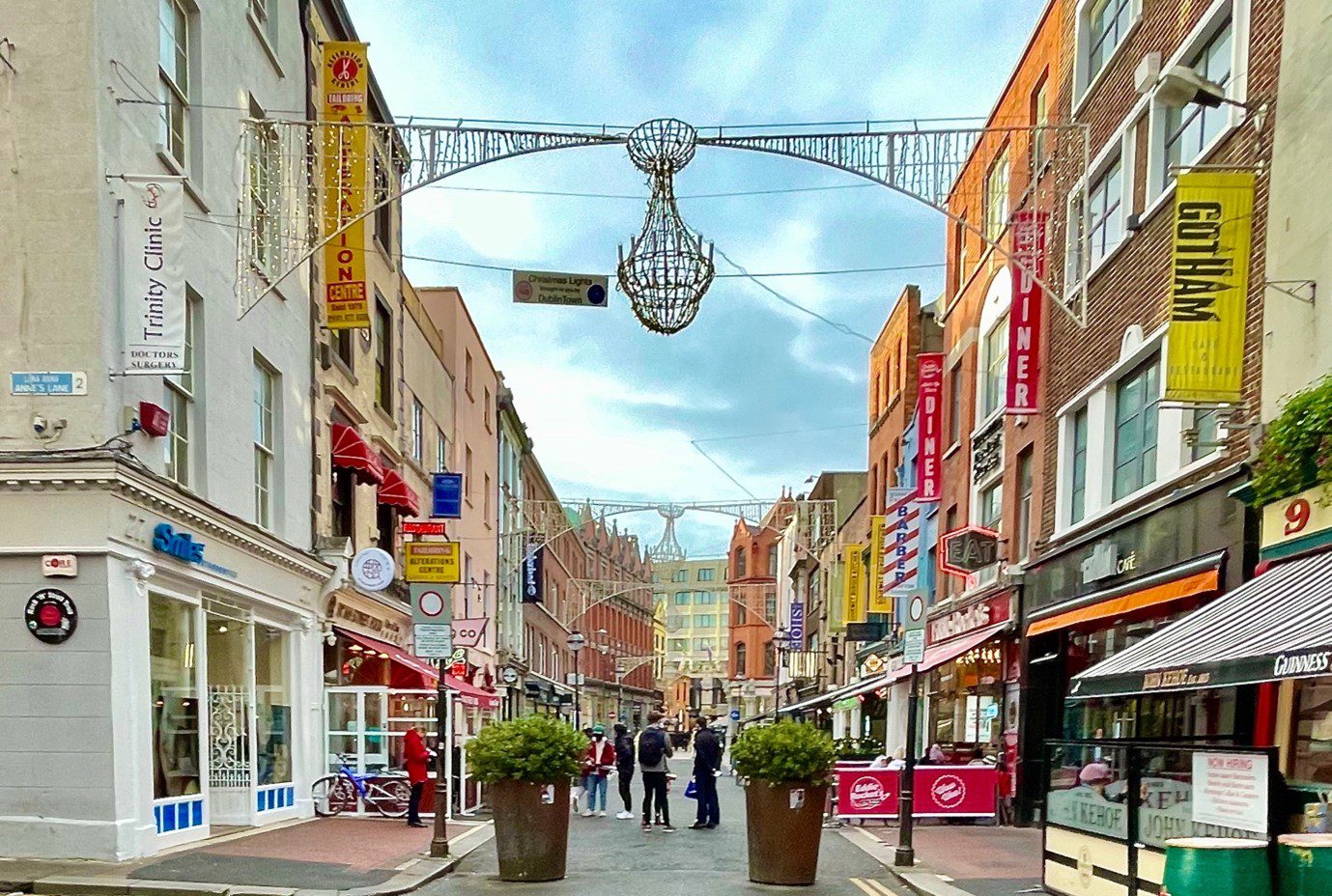
South Anne Street (pictured) has changed from a Category 1 to a Category 2 Street. This will be supportive of the burgeoning F&B activity in the area.
George Colyer is a member of Bannon’s Consultancy Team. It provides strategic solutions for stake holders in the Property Market.
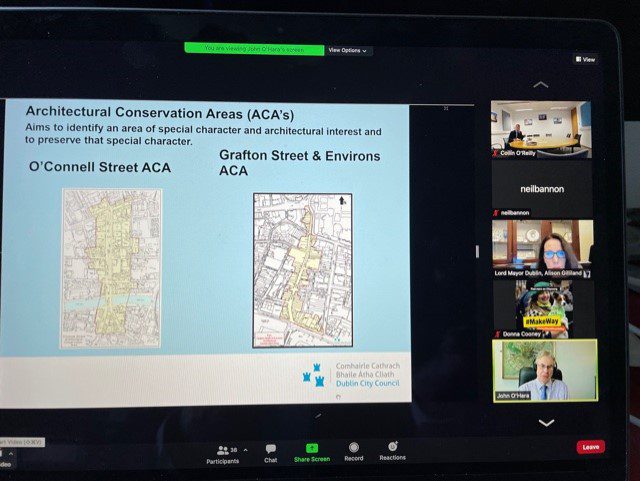
Our chairman and head of Consultancy Neil Bannon was invited to present to Dublin City Council this morning on how to tackle retail vacancy in Dublin City Centre, really positive session with great sharing of ideas & initiatives.
Bannon is pleased to have assisted Penneys in sourcing a 15.3 hectare (38 acre) site at Great Connell, Newbridge, Co. Kildare to facilitate the development of a state of the art logistics hub/distribution centre for the retailing giant.
Kildare County Council granted planning permission for the 55,277 sq m (595,000 sq ft) facility which will be accessed off the Newbridge South Orbital Relief Road. When constructed the building will serve all 36 Penneys stores across Ireland. The warehouse will feature 20 metres clear eaves height, 34 HGV dock leveller loading doors and an extensive automated goods handling system.
The area is home to several other high profile companies including Pfizer, Lidl (Regional Distribution Centre), Murphy Group and KDP Ireland (Keurig Dr. Pepper). It is also situated close to Junction 10 (Newhall) on the M7 motorway.
The site was sourced on an off-market basis following an extensive selection process. Niall Brereton who handled the transaction commented “We are delighted to have been able to acquire such an extensive and highly accessible site for Penneys. It will play a huge role to ensure the company’s continued growth as Ireland’s most popular retailer”.
 CGI of Proposed Scheme (Model Works)
CGI of Proposed Scheme (Model Works)

Covid-19 has flipped the performance of retail assets on their head. The previously-held view was that the prime to tertiary hierarchy was – city high street, major town centre, retail park, grocery retail and local necessity centres. However, in terms of demand and performance from the occupiers on the ground, this traditional hierarchy has now been reversed and is resulting in differentiation within a sector previously considered by many investors as a homogeneous entity.
Footfall is a very effective barometer to highlight this shift. High street has undoubtedly been the most negatively impacted retail market sector with Covid-19 decimating footfall and in-shop spend. Bannon estimates that there are almost 40 shops either vacant or available on Grafton Street and Henry/Mary Street out of a total of 162. Similarly the hospitality sector, including food and beverage, like non-essential retail, has been severely impacted during Covid-19. Despite a strong recovery city centre footfall counts for Q3 2021 were still 30 per cent below 2019 levels. According to the IPD Index year-on-year total returns within the sector are showing minus 12.5 per cent.
In stark contrast the necessity retail sector (being grocery, medical and service-related offers) as well the retail parks have proved to be exceptionally resilient through Covid and continue to perform very strongly. Car counts in many retail parks for Q2 and Q3 2021 exceeded 2019 levels with retailers reporting considerable turnover growth. Provincially convenience-focused shopping centres have remained resilient with limited vacancy as shoppers choose convenience and to shop locally. We are seeing footfall levels return by up to 90 per cent of their 2019 equivalents.
In the latter half of 2021 the ‘money’ began to follow the data into retail parks as is evidenced by the position taken by AM Alpha in Nutgove Retail Park (€66.3 million) and M&G Investments through the acquisition of the Parks Collection Portfolio (€74.5 million) and the agreed acquisition of Manor West (€56 million). We estimate retail parks transactions will represent more than two thirds of all retail transactions in 2021 and will be the only retail sector within the IPD showing positive total returns for 2021 (currently running at plus 6.3 per cent).
Supported largely by the threat of inflation, the resurgence in the retail grocery sector had already commenced pre-Covid in the UK and Europe, with long-let standalone grocery often trading at yield levels of between 4 and 5 per cent. This demand is beginning to emerge in the Irish market, with a shrinking gap between what the sector is trading at in the UK and the perceived value in Ireland. More recently we have seen a number of transactions which are at materially stronger yield levels than market expectation and these are due to sign before the end of the year.
Due to the structural limitations in scalability in the “grocery market” sector in Ireland (where most anchor stores are owner occupied) and the large delta which is developing between “pure grocery retail” and “necessity retail” (being service, health, medical and food-related occupiers) this sub-sector may come into more mainstream investment focus in 2022. The disconnect between the emerging grocery yields (5 per cent to 5.5 per cent) and those in the supporting “necessity retail” (9 to 10 per cent plus) seem irrationally high, especially as the necessity retail operator’s turnover is derived from the same customer base as their high-value grocery anchor neighbours. These centres along with retail parks serve to highlight opportunity within the sector where the negative narrative in the overall retail sector is keeping yields high despite resilient trading.
Rod Nowlan is an executive director at Bannon

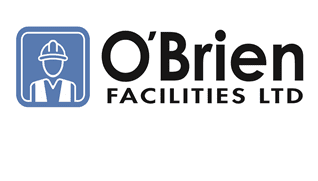
![]()
Background
The Property Management team at Bannon currently manage over 70 commercial sites across Ireland. The portfolio is made up of Shopping Centres, Retail Parks, Business Parks and Office Parks.
In recent years there has been an unquestionable shift in weather patterns, and this is particularly noticeable in the colder winter months. One such example was the severe weather experienced in February 2018 when Storm Emma hit Ireland. During the course of the storm, we saw significant accumulations of snow across our sites and temperatures as low as –11.0°C.
In any given year we see c.100 million visits to Bannon managed sites across the country and maintaining safe access to these sites is a crucial part of our role as Property Managers. We manage this risk by appointing contractors to carry out gritting services during periods of cold weather and snow clearance when required.
A number of years ago we recognised the obvious synergies associated with managing our winter maintenance services on a portfolio basis. For that reason, we have split our portfolio into three distinct zones (see below) and we tender the contract every 3 years.
Zone 1 – Greater Dublin Area
Zone 2 – South & South East
Zone 3 – Midlands, West & North West
Tender
A sub-team of Property Managers were appointed to oversee the tendering of the Winter Maintenance contract for the portfolio. The following tender process occurred;
Phase 1 – Review of portfolio geography and creation of 3 distinct zones
Phase 2 – Preparation of Request for Tender (RFT) document
Phase 3 – Shortlisting of suitable contractors including a visit to contractors’ facilities
Phase 4 – Issue RFT to shortlisted parties
Phase 5 – Review & analysis of tenders
Phase 6 – Selection & contract award to winning tenderers
In total the RFT was issued to 10 contractors and we received 6 complete tender submissions. The submissions were assessed and ranked based on pre-set criteria. All but one tenderer submitted a proposal for all three zones. The sub-team assessed the proposals and made a recommendation to the directors of the department to appoint three separate contractors (one per zone). This recommendation was followed and the contracts were awarded to the following parties;
Zone 1 – Greater Dublin Area – SAP Landscapes
Zone 2 – South & South East – O’Brien Facilities
Zone 3 – Midlands, West & North West – Ken Fitzsimons Landscaping
Benefits
The benefits of carrying out a procurement process of this nature are far reaching, to include;
Overall, we have seen significant benefits in procuring our Winter Maintenance services on a portfolio wide basis. Our retail clients can enjoy consistency of service across all sites. With a proactive and data driven approach, we ensure that footfall does not drop and visitor health and safety is managed.

Neil Bannon is a leading expert on retail property in Dublin. In the upcoming December 2021 issue of the Dublin Economic Monitor, Neil provides his thoughts on the future of the Capital’s retail core.
In advance of the publication, the below video gives a snapshot of Neil’s views on Dublin’s retail sector and the outlook for the future.
With works now complete, we are pleased to welcome Greenlight Reinsurance as the first occupier of #50CityQuay, the latest company to join the #WindmillQTR. With two further floors currently reserved, we have one ‘own door’ office floor available to lease (1,313sq.ft). Please contact Lucy Connolly or Ros Tierney for further information on 01 647 7900.
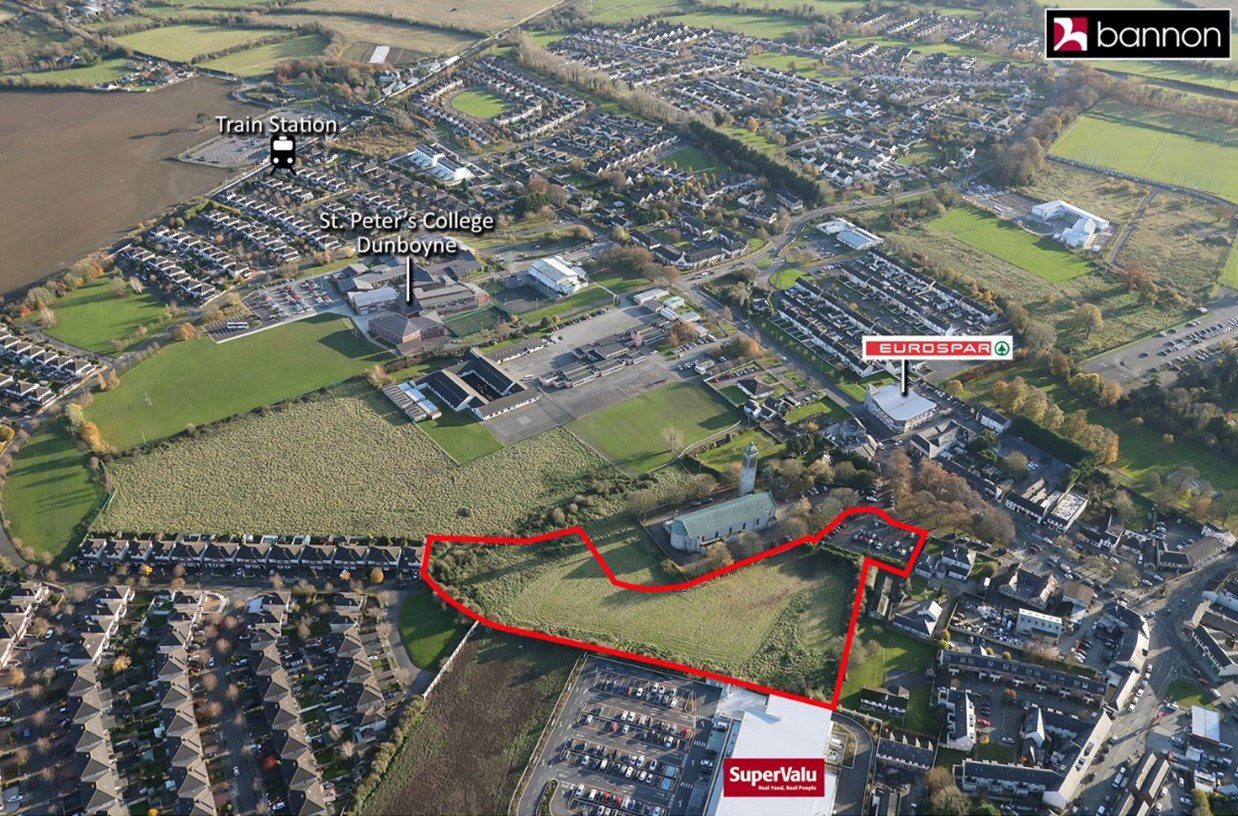
Client: St. Finian’s Diocesan Trust
The Brief: The Parish of Dunboyne identified lands adjoining St. Peter and Paul’s Church as being surplus to their requirements and as a potential means of raising funds for the Parish, particularly in the face of the financial challenges posed by Covid-19. Bannon, as joint agent, were approached to provide advice on the optimum method of disposal and how to maximise the potential of the lands, given our previous experience and expertise with the disposal of lands owned by religious institutions. The surplus land, extending to 3.54 acres, included a surface car park which was used by parishioners and church goers and needed to be replaced/relocated.
Our Solution: An alternative car park location was identified in conjunction with the design team on the lands to be retained by the Trust. Potential purchasers were provided with the specification of the proposed car park and were requested to incorporate the provision of the new car park on behalf of the Trust as part of their bid proposals.
The outcome: Following a competitive bidding process the property was transacted at a price substantially higher than the guide of €2.5m. Furthermore, the purchaser has contractually undertaken to complete the proposed new car park, subject to planning permission, on behalf of the vendor to the required specification. This means that the responsibility, and more importantly the substantial costs of project managing and overseeing a substantial works programme, has been removed from the Trust.
Testimonial: “St. Finian’s Diocesan Trust engaged Bannon as a joint selling agent in respect of the lands at main Street, Dunboyne, Co. Meath. We found Bannon to be thoroughly professional in their approach, and their market knowledge in this sector contributed greatly to achieving a successful sale.”
Fr. Patrick O’Connor.
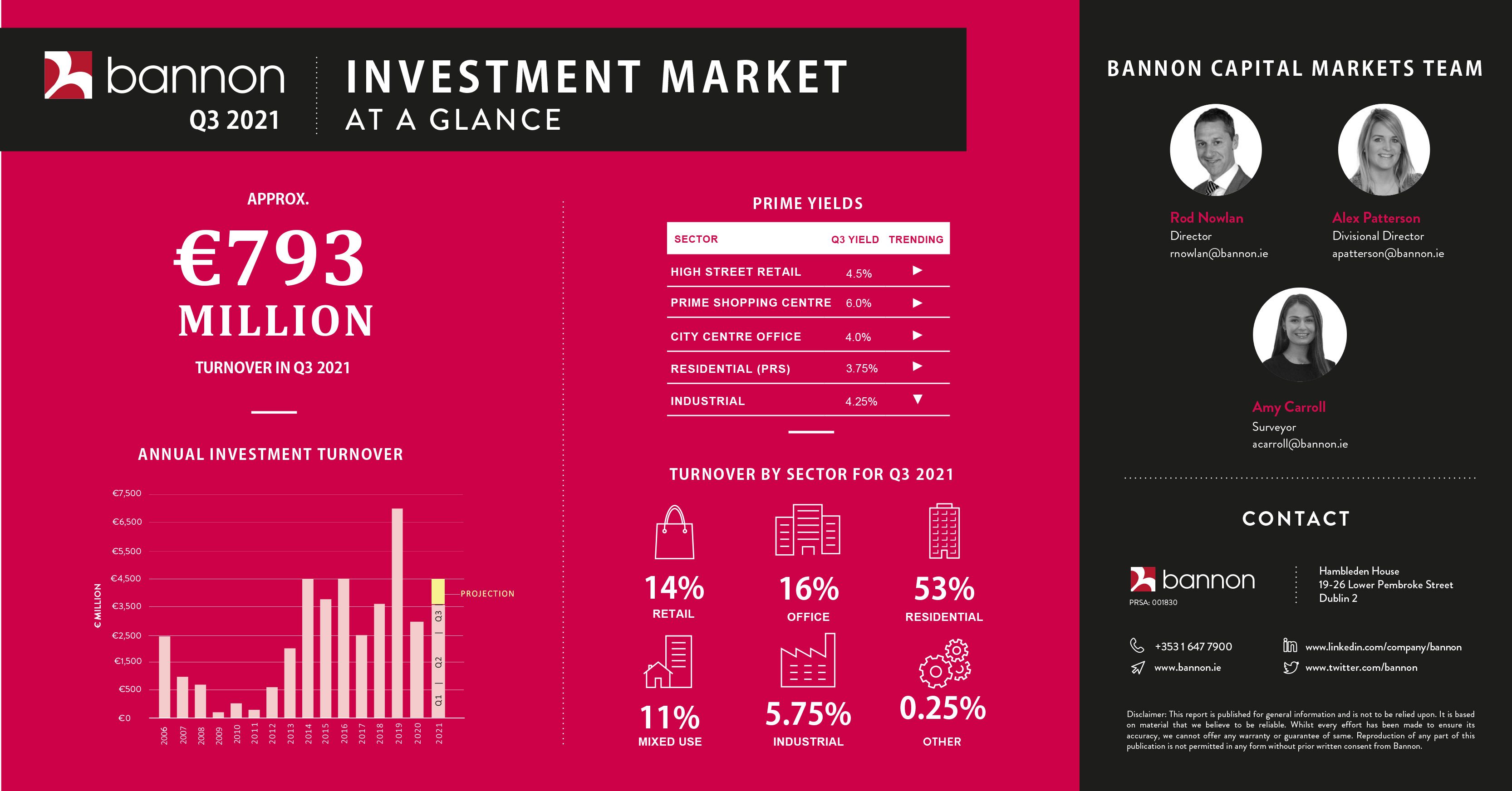
The Bannon Capital Markets snapshot highlights that the Retail Sector has finally emerged from the shadows at 14% of Q3 turnover of €794m …..but PRS remains the dominant player @ 50%. While Q3 was always going to struggle to match the pent up demand that emerged in Q2 @ €1.5bn, the outlook remains very strong. There is approx. €1.3bn on the market or at agreed stage which leaves our projection of €4.5bn for 2021 intact, an annual out-turn that will only have been surpassed once (in 2019)!
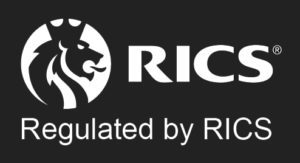


Hambleden House
19-26 Pembroke Street Lower
Dublin 2
D02 WV96
Ireland
»Map
Phone: +353 (1) 6477900
Fax: +353 (1) 6477901
Email: info@bannon.ie


